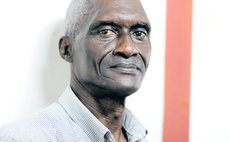De-risking and the future of indigenous banks in CARICOM: the effort of Finance Ministers
The case of Belize Bank, published in the August 4, 2016 edition of Caribbean News (See, Belize Bank hit by withdrawals and corresponding banking de-risking) demonstrates the urgency of finding and implementing counter de-risking measures in a robust and unrelenting manner as promised by the CARICOM Ministers of Finance on Correspondent Banking. At short notice, the Belize Bank was required to close its main correspondent account despite its long account relationship with that foreign bank.
In fact, at the July 4-6, 2016 CARICOM heads of government meeting held in Guyana and chaired by the Prime Minister and Minister of Finance of the Commonwealth of Dominica, the heads agreed to implement a robust and an unrelenting advocacy on the de-risking issues and, by way of a selected committee on correspondent banking, to maintain a high level of engagement with the parties involved.
Since the July 2016 meeting, the selected committee has released no public statement on the progress of their advocacy effort. Parties, interested in evaluating the progress of advocacy and the likely effects of de-risking on the operations of the region's indigenous banks, have been notified that any such information was confidential or otherwise unavailable. Meanwhile, the Belize Bank has been experiencing deposit withdrawals, restrictions on international wire transfers, and other effects (e.g. on liquidity, new credit extension and profitability).
In providing correspondent banking services to the CARICOM indigenous banks, the regulatory and supervisory agencies require their banks to be on alert for customers who may be engaged in illegal or suspicious activities. Additionally, these agencies expect the banks under their supervision to continue offering correspondent banking and other services to legal but potentially high-risk businesses. Foreign banks, therefore, are caught with two conflicting mandates from their regulatory and supervisory agencies: (a) to continue to offer high-risk correspondent banking services to several relatively small indigenous banks; and (b) to pay increasing compliance-related expenses, while generating inadequate revenue to cover the operating costs of providing such services. Surely, public disclosure on how the CARICOM committee has addressed the issue of conflicting mandates and, if it has done so, what results the committee did achieve from its advocacy would be instructive.
Foreign regulatory agencies have identified certain sectors and industries as vulnerable or to be at risk for money laundering and terrorist financing. Simultaneously, these agencies have advised banks that engaging in wholesale de-risking of an industry or sector was not desirable. Correspondent banking, money transmitting or money services businesses, and accounts of charities, etc. which are categorized as high risk activities require enhanced due diligence at the on-boarding process and continued monitoring and reporting throughout the account relationship. Such high level of due diligence, monitoring, and reporting come at high cost to the banks. The income, the foreign banks would expect from providing such services to the indigenous banks, would therefore be high, and the volume of transactions conducted by the indigenous banks would have to be large to enable the transaction fee paid by the customers of the indigenous banks to be competitive.
It is worthy to note that, through these so-called high-risk account relationships, foreign currency payments for goods and services are made, migrant transfers are received by beneficiaries and private charitable contributions are made. In view of the importance of these payments, the unimpeded flow of these transactions through the indigenous banks must be permitted. Foreign regulatory agencies may, therefore, be requested to discontinue the practice of classifying the above account relationship as high-risk. With the removal of this risk-categorization impediment, even the community banks in the US would resume providing the above account relationships as they have done for several years before 2008. My professional experiences have exposed me to correspondent banking departments of several medium sized community banks that once offered a portfolio of basic correspondent banking and trade financing services to indigenous banks located in the Caribbean and Latin America. Most of these banks, operated in a safe and sound manner and provided a satisfactory service to their foreign bank customers. Perhaps, the CARICOM committee has already considered advocating for the discontinuance of the practice of categorizing certain accounts as high-risk.
While the foreign regulatory agencies might consider changing their expectation that certain customers would be categorized as high-risk, the Caribbean governments (particularly those in the eastern Caribbean) might want to reorganize their several small indigenous banks into one amalgamated bank with branches or other remote service facilities in selected locations. A main objective of such a reorganization is to concentrate into one lager indigenous bank, all the foreign currency receipts and payments currently being processed by the smaller (sub-optimal) indigenous banking units within the region. The single indigenous bank would have the advantage of scale, would be more efficient, and more attractive to its foreign correspondent bank or banks. There are several other advantages of an integrated indigenous bank (e.g. more efficiently allocating EC Dollar savings from areas with surplus savings to area with excess demand for loans and advances; retaining management decision in the region etc.).
Finding effective solutions to the wholesale de-risking of CARICOM indigenous banks by their foreign correspondents is far more urgent than protecting the special interests of some stake holders wanting to maintain the status quo in the belief that de-risking cannot be a catastrophic event for them and for the entire indigenous banking sector in the region. Nonetheless, to prepare for such a catastrophe, the sector must be reorganized to increase its capital base, internal control and compliance programs, and operational efficiency. Such measures may be more effectively implemented through an amalgamated indigenous banking sector.
An implication of the CARICOM correspondent banking committee's apparent failure to disclose to the public the status of their advocacy is (a) the promised robust and unrelenting advocacy effort has not yet commenced or the committee members have since changed their promised effort in preference to inviting a set of well -established foreign banks to re-open their branching presence in the region and discretely closing each and every one of the indigenous banks operating there. The reopened branches would provide all the foreign exchange services obtained from their head or regional offices. The small credit unions in the region would assume some of the deposits from the indigenous banks' customers and would open their accounts with the branches of the foreign banks.
Louis Robinson 08-08-16




